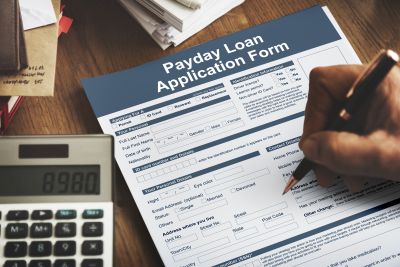How Much Loan Can I Borrow as a Foreigner in Singapore?

Many foreign nationals want to know how much loan can they borrow as a foreigner in Singapore. Many foreign nationals do not ask this question because the whole situation is quite complicated, and it varies from one government department to another.
If you are a citizen of Singapore, the amount that you can borrow as a foreigner is still the same. However, if you are not a citizen of Singapore, then the finance for your personal needs is tough to get.
The term ‘Foreigner’ depicts non-native of a country, be it resident or non- resident. Seemingly, when it comes to foreigners applying for a loan in Singapore, there are certain restrictions.
Freedom of choice is not in their hands: they aren’t free to choose the amount of money they require, as the Ministry of Law and the Ministry of Manpower dictates a limit in the amount a foreigner can ask for.
At the same time, for foreigners to access the application for a loan, they need to ascertain some criteria decided by the institutions, as mentioned above.
The reason for these institutions to come up with restrictions and limitations is not at all to be taken for granted, nor is it to be considered as erroneous against foreigners looking for a loan: in fact, they do have quite good reasons to do so.
The quoted rules and regulations ensure that the foreign applicants do not become bait for the unlicensed and illegal lenders. Not only this, but such measures also protect foreigners from the drastic consequences of a vicious cycle of debt.
SO, HOW CAN A FOREIGNER HAVE ACCESS TO A LOAN IN SINGAPORE?
First of all, you should know that, in Singapore, there is a loan plan made precisely for you, and that plan is called: Foreigner Loan. It is also called as Personal Loans for Work Permit Holders.
For a foreigner to have access to the Foreigner Loan, there are some laid down criteria that are supposed to be met substantially
- He must be a non-citizen: this means that for a foreigner to get this loan, he/she must not be a permanent citizen.
- He must have a legal and valid Singapore Work Pass, which is a document that legally states and allows you to work in Singapore. This means that, for a foreigner to get his Foreigner Loan, he must be employed on a full-time basis.
- He must be 21 to 55 years old.
- He may need a bank statement and an employment letter from his company. This is done for moneylenders to be sure that he has a currently registered job and the income necessary to repay the loan.
- He has to make sure he is in possession of all these following documents before applying for a loan:
- S Pass;
- E Pass;
- Entrepreneur Pass.
WHAT IS THE INTEREST RATE FOR FOREIGNERS LOANS?
Lending loans to foreigners can potentially constitute a risk for moneylenders like https://www.365credit.com.sg since the permanency of his residence in the country is blurry, he might go away before the loan is completely repaid.
The interest rates for foreigner loans are usually high, owing to the fear that their money might be at stake.
That being said, the interest rate for foreigners’ loan always depend on other factors as well, so although they may be high, this will be influenced in foreigner’s credit and employment history as well.
Therefore, even though it cannot be considered as a universal rate, foreigner loan’s interest rate usually goes from a minimum of 4.48% to a maximum of 10% per year (or more).
However, in applying for a loan, a foreigner should always consider the actual amount of time he is going to stay in Singapore: no matter the interest rate, having to pay a debt in another Country could lead to potentially more severe problems.
It is also essential and best for foreigners – as well as for citizens – to make sure they are getting in contact with real and reliable moneylenders, such as banks and licensed credit companies.
Some unlicensed, illegal, or even non-existent moneylenders may offer foreigners lower interest rates for their loans. Also, a lesser length of time in which the loan will be credited in their account or more: they may offer them a certain amount of money, which is very high, and much more than what foreigners may need.
Making sure that you are not applying for an unjustifiable Foreigners Loan will not only prevent you from losing your money and time; it will mostly keep you away from having legal problems.
As previously said, being with illegal moneylenders will drag you into more serious issues like the ones you would have to face for an unpaid debt. Remember that the accountability of a foreign figure in case of hoax, scam, or fraud is very seriously looked into.
How to prevent that from happening?
Always call the moneylenders asking for a real face- to- face meeting, and do not, in any circumstances, give personal and business-related information over email or a cellphone.
WHAT IS THE AMOUNT OF MONEY A FOREIGNER CAN BORROW IN SINGAPORE?
The amount of money a foreigner can borrow from a moneylender, whether it is a bank or a licensed credit company, is not the same for everyone.
The Ministry of Law of Singapore gave precise directions as to the amount of money a foreigner can borrow based on different factors.
Therefore, the actual amount of money foreigners can get from a Foreigner Loan is:
- $3.000 if a foreigner has an annual income of less than $20.000;
- In case a foreigner earns more than $20.000 per year, they can have access to a loan which is six times their monthly income;
- $1.500 is the amount a foreigner can get from his loan if his yearly salary is less than $10.000.
If you wish to find out how much loan I can borrow as a foreigner in Singapore, then you should look for your answer from the various online mortgage agencies in SG.
Many online mortgage agencies deal with the loan application process, for the loan application procedure in Singapore, you can always rely on the official website of the Monetary Authority of Singapore.





